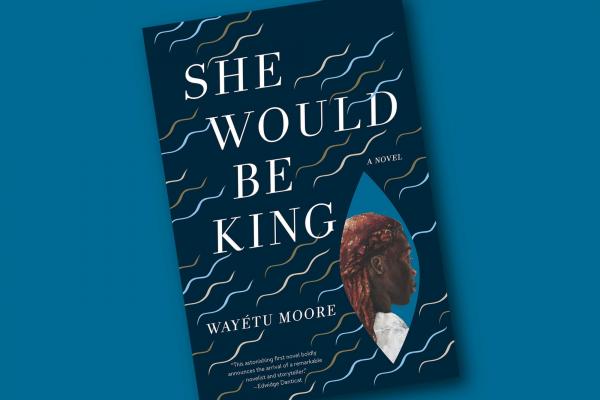“FENGBE, KEH KAMBA BEH. Fengbe, kemu beh. We have nothing but we have God. We have nothing but we have each other.”
Like the voice of the wind, this song pervades the vivid landscape of Wayétu Moore’s debut novel, in which the Liberian-born writer explores the early days of Liberia, in the 1840s, through three characters: Gbessa, June Dey, and Norman Aragon.
In She Would Be King, these three impossible lives (and a country) emerge out of slavery, violence, and exile. Death eludes and “mocks” Gbessa, of the Vai people, who constantly suffers the pain of dying without its relief. Born on a cursed day, Gbessa grows up under house arrest until she is exiled. Alone in the forest, torn from her family and people, she sings, “Fengbe keh kamba beh. Femgbe, kemu beh.” The “we” of this song haunts the reality of Gbessa’s situation, and to offer a glimpse of the big picture, Moore writes: “The words ascended, joining the traveling wind, and sometimes it was as though someone were singing with her.”
And someone was. Across time, language, and distance. Ol’ Ma Famatta sits in the moon, and the slave once known as Charlotte whispers comfort in the wind as if to say loneliness is not forever, as if to promise Gbessa that she is not alone.
Read the Full Article

